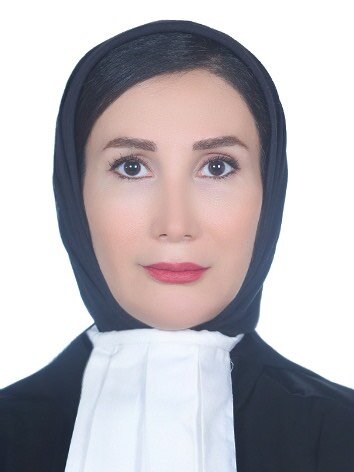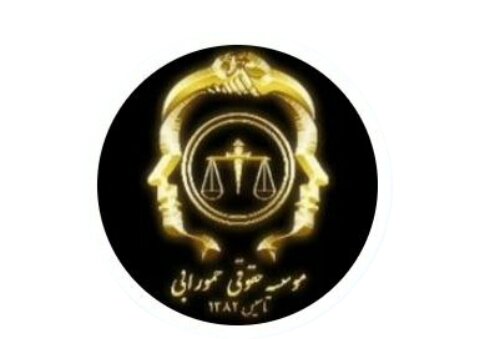Best Corporate Governance Lawyers in Tehran
Share your needs with us, get contacted by law firms.
Free. Takes 2 min.
List of the best lawyers in Tehran, Iran
About Corporate Governance Law in Tehran, Iran
Corporate governance refers to the frameworks, processes, and rules that determine how corporations are directed and controlled. In Tehran, Iran, corporate governance is a developing and vital area of business law, designed to promote transparency, accountability, and equitable treatment of stakeholders within both public and private companies. The region's corporate governance laws are influenced by Islamic principles, local regulations, and international best practices. Iranian authorities have been actively working to strengthen the regulatory environment to attract investment and improve the performance of companies through clearer legal obligations and enhanced protection for shareholders and stakeholders.
Why You May Need a Lawyer
Navigating corporate governance in Tehran can be complex, especially for those unfamiliar with local laws. You may need a lawyer in situations such as:
- Setting up a new company or joint venture and drafting shareholders' agreements
- Ensuring compliance with the Iranian Commercial Code and related regulations
- Resolving disputes between shareholders or board members
- Dealing with regulatory investigations or compliance audits
- Understanding your rights and obligations as a director or officer
- Advising on mergers, acquisitions, or significant corporate restructuring
- Implementing or reviewing internal corporate controls and policies
Local legal experts can help you interpret the laws correctly, avoid penalties, and represent your interests effectively in any corporate governance matter.
Local Laws Overview
Key Iranian corporate governance laws are derived from the Iranian Commercial Code, the Securities Market Act, and additional regulations by the Iranian Securities and Exchange Organization. Some important features include:
- The requirement for companies, especially publicly listed entities, to have a board of directors and supervisory structures
- Obligations for regular disclosure and reporting to regulators and shareholders
- Laws regarding minority shareholders' rights and mechanisms to resolve their grievances
- Director and officer duties, including standards on avoiding conflicts of interest and acting in good faith
- Strict stipulations on insider trading, market manipulation, and other forms of misconduct
- Mandatory external auditing and financial transparency measures for larger companies or listed firms
- Supervisory authority of governmental bodies such as the Iranian Securities and Exchange Organization and other relevant ministries
These laws are designed to ensure fair management, protect investors, and foster a stable business environment in Tehran and across Iran.
Frequently Asked Questions
What is corporate governance, and why is it important in Tehran, Iran?
Corporate governance defines how a company is directed, controlled, and held accountable. In Tehran, it is important to promote fair management, attract investment, and ensure legal compliance with local standards.
Who regulates corporate governance in Tehran?
The Iranian Securities and Exchange Organization, the Ministry of Economic Affairs and Finance, and the Tehran Stock Exchange primarily oversee corporate governance standards and compliance for most companies, especially public ones.
Are there specific requirements for boards of directors in Tehran?
Yes, Iranian law requires companies to have a board of directors, with certain qualifications for membership, tenure, and duties outlined in the Iranian Commercial Code and Securities Market Act.
What duties do directors have under Iranian law?
Directors must act in good faith, avoid conflicts of interest, prioritize the company’s wellbeing, and comply with all relevant regulations. Failure to do so can result in legal and financial penalties.
How are minority shareholders protected?
Minority shareholders are afforded certain rights, including access to information, participation in general meetings, voting, and avenues for resolving disputes with majority shareholders through legal channels.
Is external auditing mandatory for all companies?
External auditing is mandatory for listed companies and those above a certain size threshold under Iranian regulations. Smaller or private companies may have less stringent requirements but are still encouraged to adhere to high standards.
How are corporate disputes typically resolved?
Disputes may be settled internally, but often require mediation, arbitration, or litigation in specialized commercial courts or through state-sanctioned dispute resolution committees.
What are the penalties for corporate governance violations?
Penalties range from financial fines and administrative sanctions to criminal liabilities or disqualification from holding corporate office, depending on the violation's nature and severity.
Do international best practices influence local corporate governance?
Yes, Iran adapts many international principles, such as those by the Organization for Economic Cooperation and Development (OECD), but adjusts them to fit the local economic, legal, and cultural context.
How often do companies need to disclose financial or operational information?
Disclosure timelines can vary, but listed companies must regularly provide updates to stakeholders and regulatory bodies, typically on a quarterly and annual basis, in accordance with local law.
Additional Resources
If you are seeking further guidance or support in corporate governance in Tehran, you may consult the following organizations:
- Iranian Securities and Exchange Organization (SEO)
- Tehran Stock Exchange (TSE)
- Ministry of Economic Affairs and Finance
- Iran Chamber of Commerce, Industries, Mines and Agriculture
- Professional legal associations specialized in commercial and corporate law
These bodies offer useful resources, seminars, publications, and advisory services to help companies, investors, and directors stay informed on best practices and legal obligations.
Next Steps
If you need legal assistance in corporate governance in Tehran, consider the following steps:
- Identify the specific corporate governance issue or query you have
- Gather all relevant company documents and correspondence
- Seek recommendations or research qualified lawyers experienced in Iranian corporate governance law
- Schedule a consultation to discuss your matter and get tailored advice
- Stay proactive in monitoring compliance and implementing any legal recommendations
Timely legal support can help address issues efficiently, protect your legal and financial interests, and support the long-term success of your company in Tehran’s dynamic business environment.
Lawzana helps you find the best lawyers and law firms in Tehran through a curated and pre-screened list of qualified legal professionals. Our platform offers rankings and detailed profiles of attorneys and law firms, allowing you to compare based on practice areas, including Corporate Governance, experience, and client feedback.
Each profile includes a description of the firm's areas of practice, client reviews, team members and partners, year of establishment, spoken languages, office locations, contact information, social media presence, and any published articles or resources. Most firms on our platform speak English and are experienced in both local and international legal matters.
Get a quote from top-rated law firms in Tehran, Iran — quickly, securely, and without unnecessary hassle.
Disclaimer:
The information provided on this page is for general informational purposes only and does not constitute legal advice. While we strive to ensure the accuracy and relevance of the content, legal information may change over time, and interpretations of the law can vary. You should always consult with a qualified legal professional for advice specific to your situation.
We disclaim all liability for actions taken or not taken based on the content of this page. If you believe any information is incorrect or outdated, please contact us, and we will review and update it where appropriate.

















